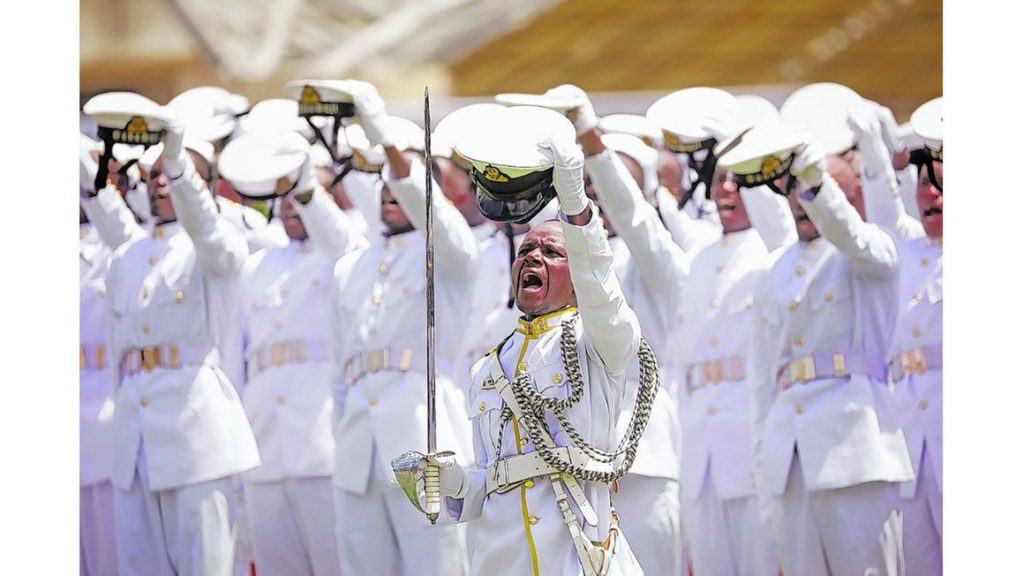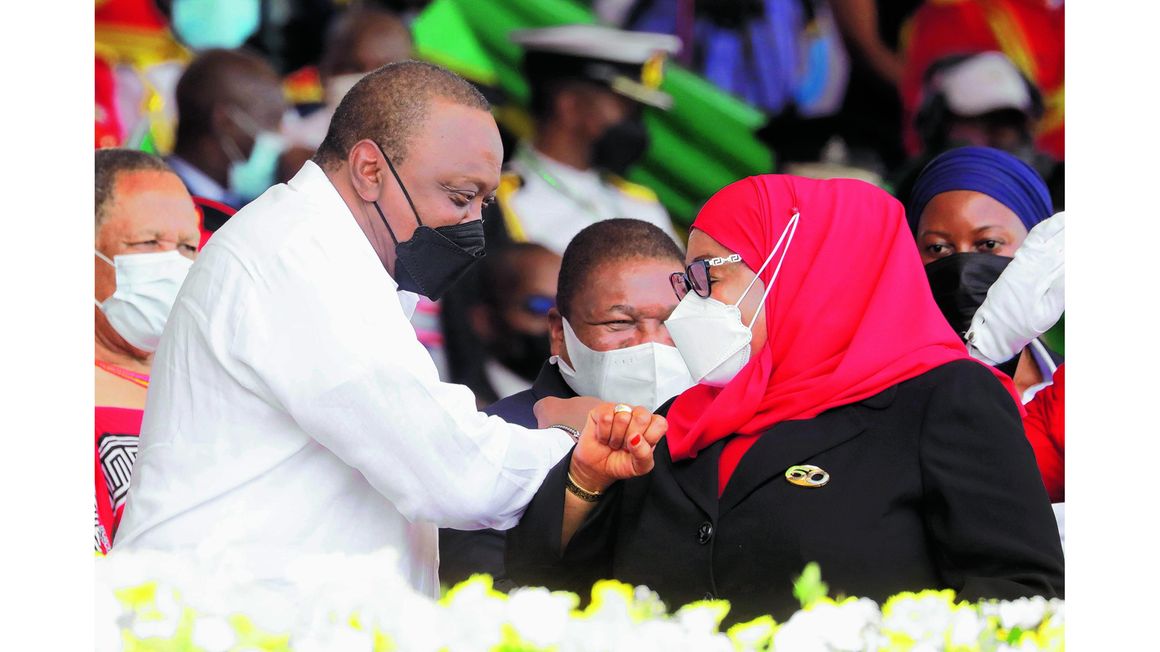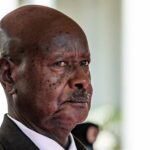
Pomp and colour as Tanzania celebrate 60 years of independence
Published on December 11, 2021 at 7:21 AM by Chisomo Kambale
President Samia Suluhu Hassan on Thursday led Tanzanians in marking the 60th anniversary of Tanganyika independence during a colorful event that took place at the Uhuru Stadium here.
The event was attended by four presidents of African countries and senior foreign leaders who represented their respective heads of state,as well as representatives of regional and international organizations.
The delegation of the heads of states was led by the Kenyan President and chairman of the East African Community (EAC), Mr Uhuru Kenyatta, who also embarked on a two-day state tour of the country.
Others were the President of Rwanda, Paul Kagame; President Filipe Nyusi of Mozambique, and President Azali Assoumani of Comoro.
Tanzanian leaders who attended the event included the Vice President, Dr Philip Mpango, Prime Minister Kassim Majaliwa, Zanzibar’s President, Dr Hussein Ali Mwinyi, the Chief Justice, Prof Ibrahim Juma, National Assembly Speaker Job Ndugai, lawmakers and heads of ministries, departments and agencies.
Retired Union President Jakaya Kikwete, and Zanzibar President Amani Abeid Karume and Ali Mohammed Shein also attended the event as well former prime ministers; first ladies (led by Mama Maria Nyerere) and members of the diplomatic corps.

President Samia Suluhu Hassan (R) greets Kenya’s President Uhuru Kenyatta when they attend the celebration of the 60th anniversary of independence day at the Uhuru Stadium in Dar es Salaam yesterday. PHOTO|ERICKY BONIPHACE
The Uhuru Stadium was fully packed by 9am: long before official commencement of the celebrations. The attendants were feted with music, shows and other events that embellished the event as they waited for arrival of the guest of honour.
President Samia Suluhu Hassan’s convoy arrived at the Uhuru Stadium at 10.15am along with the Chief of Defence Force (CDF), General Venance Mabeyo.
In an open military vehicle, President Hassan rounded the Uhuru Stadium while waving to the cheering crowds – dressed in clothes with colours that resembled the national flag – waved back at the Head of State.
Dressed in a black suit and wearing glasses, a white face mask and a red scarf, President Hassan was accorded a grand welcome.
They include the ceremonial guard of honour and the 21 gun salute which the privilege is given to the Head of State in important national occasions.
Respectful welcome was followed by the national anthem and the anthem of the East African Community (EAC) before the head of state was invited to inspect the guard of honour in her respect.
The Tanzania Immigration Force participated in this year’s ceremony for the first time ever, after government’s amendment of the Immigration Act to recognize it as a complete force.
According to the time-table, the defence and security forces then paraded and displayed a salute of respect to the president.
The event was followed by colourful exhibitions of military arsenals used in ground and aerial operations.
Defence and security officers carrying guns in different formats matched past the head of state to demonstrate their readiness to continue protecting and maintaining order in the borders and the country’s independence.
Warplanes flew past the stadium grounds, decorating the skies in the Temeke District where the Uhuru Stadium is located demonstrating the country’s advancement in that sector 60 years after independence.
However, unlike former presidents who used to make maiden speeches during such celebrations, President Hassan only introduced a delegation of leaders from foreign countries who attended the event.
After all, she had addressed the public on Wednesday night during which she narrated the tough economic journey the country had made after independence, the secret behind recorded achievements and the meaning in the union between Tanganyika and Zanzibar.
Speaking during the live broadcast, President Hassan said it was difficult to move the country from a low income economy to the lower-middle income economy.
“It is yet a huge challenge to take the country from a lower-middle income economy to an upper-middle economy – and, later to an upper income economy. However, the on-going job would catalyse us to reach there,” she said.
“I, therefore, call upon Tanzanians to maintain peace, solidarity and our unity in order to increase the rate of economic growth, as well as transforming the economy whenever required in order to align it with the rate of global economic growth,” she said.
President Hassan urged Tanzanians to continue protecting the environment with highest diligence in order to bequeath to future generations the blessed country as received from our ancestors. She said the National Development Vision 2025 is about to become a reality, when the country’s annual economic growth was projected to be eight percent by then.
“We are going to prepare a new National Development Vision 2025-2050 that will give direction of the country’s economic growth at the national and individual levels, prioritising sectors that directly touching citizens such as agriculture, livestock, fisheries and industrial development,” she said.
Revealing the secret behind the country’s success, President Hassan commended all leadership phases for upholding democratic governance and the rule of law.
She said the country abandoned political pluralism in 1962 in order to build and consolidate national cohesion. However it was reinstated in 1992.
“Since reinstatement of multiparty democracy, the country has registered 16 political parties with 17 others applying for provisional registration. We have adopted a system which is lauded worldwide for commissioning leaders during democratic elections organized after every five years,” said the president.
Furthermore, citizens have been exercising their democratic right to vote or be voted for at elections.
“During independence in 1961 the country had 80 legislators, compared to 393 sitting in the august National Assembly today. The legislators include 143 women and 248 men,” she said.
She said that Tanzania has continued to protect and respect fundamental human rights by formulating systems that give freedom for citizens to air their views.
President Hassan said freedom of the press has continued to be respected – noting that 270 journals, 198 radio stations, over 200 online radios, 120 blogs, 51 mainstream television and over 500 online TVs have been registered to operate in Tanzania.
The Tanganyika independence in December 1961 was the catalyst for the Zanzibar Revolution of January 12, 1964 that paved the way for the unification of Tanganyika and Zanzibar on April 26, 1964.


